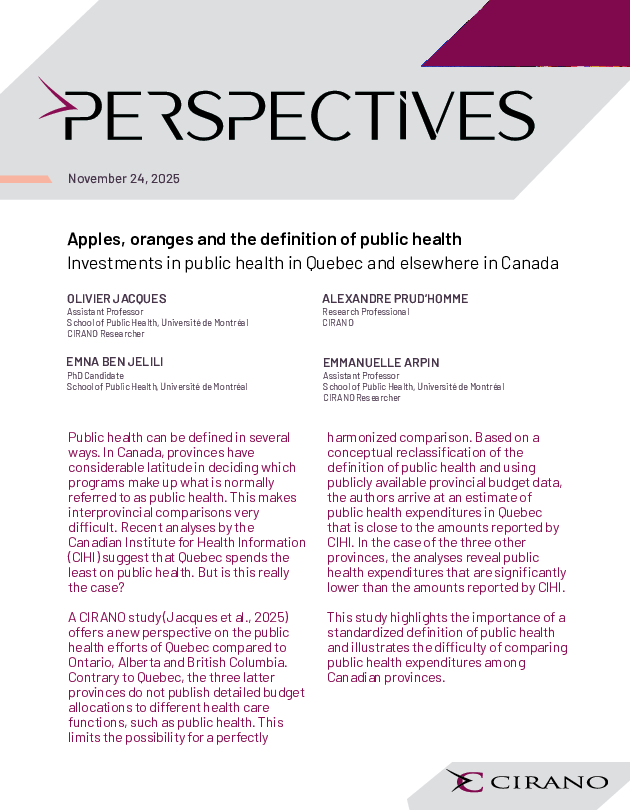Apples, oranges and the definition of public health
Investments in public health in Quebec and elsewhere in Canada
Public health can be defined in several ways. In Canada, provinces have considerable latitude in deciding which programs make up what is normally referred to as public health. This makes interprovincial comparisons very difficult. Recent analyses by the Canadian Institute for Health Information (CIHI) suggest that Quebec spends the least on public health. But is this really the case?
A CIRANO study (Jacques et al., 2025) offers a new perspective on the public health efforts of Quebec compared to Ontario, Alberta and British Columbia. Contrary to Quebec, the three latter provinces do not publish detailed budget allocations to different health care functions, such as public health. This limits the possibility for a perfectly harmonized comparison. Based on a conceptual reclassification of the definition of public health and using publicly available provincial budget data, the authors arrive at an estimate of public health expenditures in Quebec that is close to the amounts reported by CIHI. In the case of the three other provinces, the analyses reveal public health expenditures that are significantly lower than the amounts reported by CIHI. This study highlights the importance of a standardized definition of public health and illustrates the difficulty of comparing public health expenditures among Canadian provinces.




